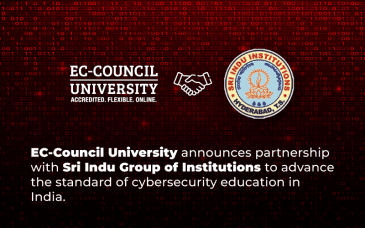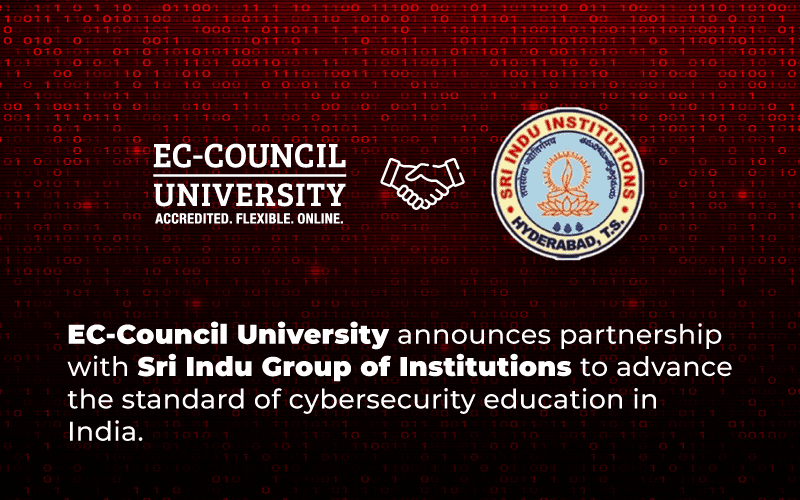What Can You Do with a Master’s Degree in Cybersecurity?
The global rise in cyberattacks has made companies increasingly susceptible to security breaches and loss of data. When factoring in the growing number of people working remotely—and therefore accessing networks that may be located across the globe—ensuring enterprise-level cybersecurity seems to be a daunting task.
Businesses are devoting substantial resources to recruiting and retaining skilled cybersecurity professionals to protect their digital assets from cybercriminals. However, there is a shortage of qualified cybersecurity professionals who can help organizations secure their data and computer systems.
If you are interested in a career in this field, now is the perfect time to pursue a master’s degree in cybersecurity given the shortage of qualified talent. A master’s degree in cybersecurity can open the door to numerous well-paying positions and opportunities for career advancement.
Is It Worth Getting a Master’s Degree in Cybersecurity?
A master’s degree in cybersecurity is well worth the time and money, as it can open up numerous career paths. An advanced cybersecurity education allows you to show potential employers that you have a strong commitment to the cybersecurity field and have the skills they are looking for.
In a cybersecurity master’s program, you’ll gain a comprehensive understanding of the technical skill set required to succeed in the cybersecurity field. Pursuing a master’s degree in cybersecurity will also hone your critical-thinking, problem-solving, and leadership skills.
What Are the Career Opportunities in the Cybersecurity Field?
What is the current state of the cybersecurity job market? How can a master’s degree help your career? Dr. Shawn P. Murray, president and chief academic officer at Murry Security Services and chief operations officer at ISSA International, shares his insights in a webinar in the Cyber Talks series by EC-Council University (ECCU).
Any organization that relies on computer networks in the course of its operations needs cybersecurity professionals to safeguard its data and systems. This means that the range of career possibilities is almost endless, given that just about every public- and private-sector entity uses a computer network. As a security professional, you could find yourself assisting a wide range of organizations: from universities to defense contractors to everything in between.
A master’s degree in cybersecurity can pave the way to an interesting and well-paying career. You might spend your days as a cybersecurity analyst, drafting an organization’s network architecture to prevent attacks on the system; as a penetration tester, identifying and mitigating threats to organizations’ networks; or even as a cybersecurity sales engineer, offering advice on the best network protection tools.
Six Careers to Pursue After Getting a Master’s in Cybersecurity
Graduates with a master’s degree in cybersecurity have a wide range of career options. Consider some of the following opportunities in the field.
Chief Information Security Officer
The role of a chief information security officer (CISO) is to oversee strategic, budgetary, and operational aspects of data management and protection. CISOs also manage teams of information security specialists, computer analysts, and comparable professionals to identify, neutralize, and eliminate cybersecurity threats.
An organization’s CISO is responsible for staying up to date with the latest technologies and threats, monitoring the organization’s security vulnerabilities, and ensuring the best allocation of resources to protect the organization’s data and networks. The annual average salary of a CISO in the United States is USD 167,021 (PayScale, 2022e).
Security Architect
A security architect is responsible for anticipating potential threats and faults and then designing an organization’s computer systems and networks to protect against them. A security architect must have strong leadership and communication skills. The annual average salary of a security architect in the United States is USD 121,934 (PayScale, 2022a).
Digital Forensics Expert
A digital forensics expert—sometimes referred to as a computer forensics examiner, engineer, or investigator—is responsible for investigating cyberattacks. Digital forensics experts may also identify flaws in an organization’s computer systems and networks that could lead to a cyberattack.
Large corporations, governments, and law firms are the main employers of digital forensics experts, who are often involved in gathering and analyzing digital evidence for criminal, civil, or private investigations. The average annual salary of a digital forensic investigator in the United States is USD 65,352 (PayScale, 2022b).
Penetration Tester
A penetration tester is employed by an organization to develop tests that simulate cybercrimes. Penetration testers are responsible for improving a company’s information security by detecting and correcting system weaknesses before malicious hackers detect them. The average annual salary of a penetration tester in the United States is USD 87,845 (PayScale, 2022d).
Network Security Engineer
A network security engineer detects existing security issues in an organization’s network and tracks vulnerabilities in order to build safeguards against future cyberthreats. Network security engineers do this by testing and configuring the organization’s network hardware and software.
In addition, network engineers may also develop security authentication protocols and maintain the organization’s security-related standard operating procedures. The average annual salary of a network security engineer in the United States is USD 92,193 (PayScale, 2022c).
Cybersecurity Sales Engineer
A cybersecurity sales engineer advises on security product sales by applying both technical knowledge and sales skills. They work with the sales team and manage the technology evaluation as part of the sales process.
The role of a cybersecurity sales engineer involves briefing the organization on the technical and functional aspects of a product or service, as well as providing solutions for any technical issues. In the United States, the average annual salary of a sales engineer with cybersecurity expertise is estimated at around USD 117,916, according to PayScale (2022f).
Get Your Master’s in Cybersecurity at EC-Council University
ECCU delivers leading educational programs in cybersecurity. ECCU’s bachelor’s and master’s degree programs are designed to equip students with the expert skills needed to tackle and address complex IT security risks.
ECCU’s Master of Science in Cyber Security (MSCS) program presents you with an opportunity to learn both the theoretical and practical aspects of the cybersecurity domain. Students are exposed to the intersections of technology, law, policy, governance, information, and intelligence, thereby enhancing their breadth of knowledge in the field.
Accredited by the Distance Education Accrediting Commission (DEAC), ECCU is highly regarded for its fully online cybersecurity programs, both degree and non-degree. Its faculty comprises industry practitioners who serve as leading mentors for students, and its state-of-the-art iLabs facility provides extensive opportunities for hands-on learning.
FAQs
Ans. ECCU’s MSCS degrees are 100% online. This gives students the flexibility to complete their coursework from any location and at times that work with their busy schedules. All you need to ensure smooth learning is a strong internet connection.
Ans. ECCU’s MSCS degree is designed to be completed in 2 years. Each year includes four 10-week terms.
Ans. ECCU’s MSCS degree is unique for several reasons:
- Students can study virtually, irrespective of geographic location or time zone.
- The faculty is composed of experts who are also industry leaders and serve as mentors, shaping students’ theoretical and technical cybersecurity skills.
- The MSCS program offers five specialization tracks, enabling students to focus on the field of study about which they are most passionate. Each specialization is mapped to a well-defined sector of the security industry with strong job prospects.
Ans. MSCS graduates from ECCU are well qualified for a number of career paths. ECCU offers five pertinent specializations in its master’s program: Digital Forensics, Cloud Security Architect, Executive Leadership in Information Assurance, Security Analyst, Incident Management, and Business Continuity. Students may choose career paths that align with their chosen MSCS specialization.
Found this article interesting? Follow EC-Council University on Facebook, Twitter, Instagram and LinkedIn to read more exclusive content.
References
PayScale. (2022a, February 1). Average security architect salary. https://www.payscale.com/research/US/Job=Security_Architect/Salary
PayScale. (2022b, March 2). Average digital forensic investigator salary. https://www.payscale.com/research/US/Job=Digital_Forensic_Investigator/Salary
PayScale. (2022c, April 7). Average network security engineer salary. https://www.payscale.com/research/US/Job=Network_Security_Engineer/Salary
PayScale. (2022d, April 9). Average penetration tester salary. https://www.payscale.com/research/US/Job=Penetration_Tester/Salary
PayScale. (2022e, April 11). Average chief information security officer salary. https://www.payscale.com/research/US/Job=Chief_Information_Security_Officer/Salary
PayScale. (2022f, April 12). Average sales engineer with cyber security skills salary. https://www.payscale.com/research/US/Job=Sales_Engineer/Salary/dbde7f79/Cyber-Security












